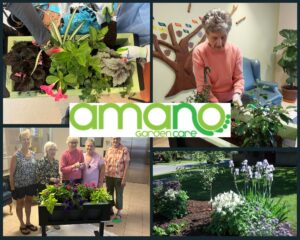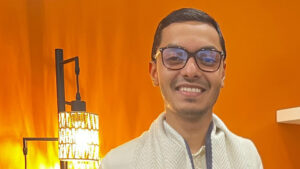Open Collaboration for Cognitive Accessibility, operating in both French and English, provides a unique and innovative platform for the co-creation of solutions for inclusive communities. It brings together persons living with cognitive disabilities and technology developers, accessibility specialists, researchers, and public organizations.
Where are you located and when was the social enterprise started?
Open is located in Ottawa, however, our activities have no borders. It was incorporated in 2020.
What was the inspiration behind your social enterprise?
We know very little about ways to make our environment more accessible and inclusive for people with cognitive disabilities, and this gap in knowledge precludes them from contributing to our society. People with cognitive disabilities know what barriers they face and they often have suggestions to improve the accessibility of the environment. Open provides them with a platform to meaningfully contribute to innovations that concern them.
Tell us about the people you serve? How do they typically find you?
Professionals and academics with the need and desire to co-create, innovate and validate proprietary cognitive accessibility ideas, approaches and solutions for organizations, businesses or research. Open employs persons with cognitive disabilities for testing the cognitive accessibility of technology, services and built environments.
What challenges do you face day to day?
One of our main challenges is the stigma associated with having a cognitive disability, and the lack of understanding of the impact of cognitive disabilities on one’s life. Persons with cognitive disabilities constitute a significant portion of the population with heterogeneous abilities. They are often excluded from meaningful educational and vocational activities.
How has COVID-19 affected your activities and what are you doing to respond?
Persons with cognitive disabilities have a long history of social exclusion and marginalization. During the COVID-19 pandemic, the inequities they face have been exacerbated by long periods of social isolation, disrupted support networks, low employment and education opportunities, and limited access to information and communication technology (ICT) that we commonly use to observe social distancing measures. Many have lost their employment.
Because of the pandemic, our launch has been delayed. We had to adapt our protocol to respect social distancing measures. Although a challenge at first, it became an opportunity to work without borders. We have hired Advisors in Cognitive Accessibility from all over Canada, and beyond.
What are some of the lessons you and your team have learned along the way?
Users testing is critical to make solutions accessible to persons with cognitive disabilities, and better respond to their needs. We have developed a cutting-edge protocol that involves active collaboration with and employment of persons with cognitive disabilities and exceeds existing national and international standards for testing the cognitive accessibility of technology, services and built environments. This process relies on a strong network to help recruit and support our Advisors.
What’s your vision moving forward?
By identifying and disseminating solutions for the cognitive accessibility of our environment, we are getting closer to building a strong, healthy and resilient community that can withstand future emergencies due to a robust and universally accessible infrastructure. Our work will support the enforcement of the Accessible Canada Act, which demands the removal of unfair barriers for Canadians with disabilities.
What makes you most proud?
Open aims to better the lives of persons with cognitive disabilities, and employing them for testing technology, services and built environments is instrumental in achieving that goal. In an iterative process, feedback from Advisors is supplied to our customers who subsequently enhance the accessibility of their product or service for persons with cognitive disabilities. “It’s nice to be able to make a difference,” says D. Sauvé, one of Open’s Advisors.
What keeps you up at night?
My children 😉
Open is promising, but unique and growing. We have to demonstrate to our potential customers how much they can gain from involving persons with cognitive disabilities in designing and testing solutions. We have to be creative in how we reach out to potential customers who might not even be looking for us since they don’t know such a resource exists. Our first contracts were a success, and our Advisors are eager to help shape our environment. We now have to keep our momentum.
How has CSED helped you?
CSED has provided mentoring and strategic advice to the executive team in the incubation stages of the enterprise. CSED has helped develop our website.
CSED provides Open visibility (Directory, Spotlight, and various talks)



